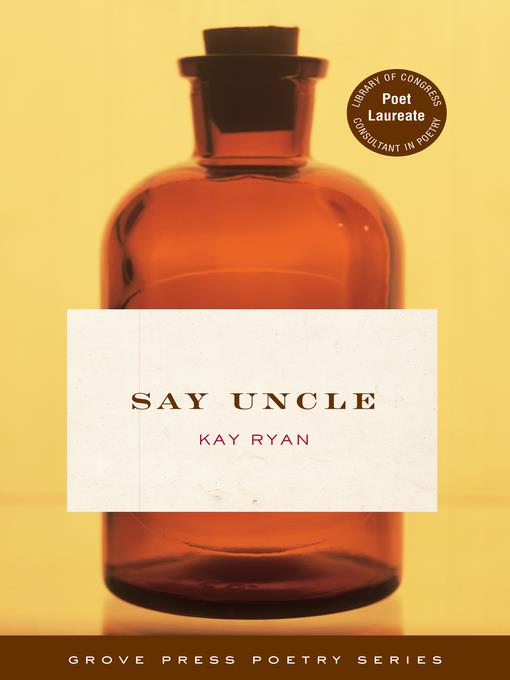
Say Uncle
Grove Press Poetry
کتاب های مرتبط
- اطلاعات
- نقد و بررسی
- دیدگاه کاربران
نقد و بررسی

August 7, 2000
Witty, charming, serious and delightful, Ryan's fifth book of poems is also remarkably specialized. Beginning from single observations or sayings or from single facts of science or folklore, the poems seek compression, consonance, cute rhymes, and moral lessons; usually they stop short on single remarks. All are brief, irregularly rhymed, arranged in very tight acoustic patterns, and confined to very short lines (normally of no more than six syllables). Of "The Fabric of Life," Ryan begins, "It is very stretchy./ We know that, even if/ many details remain/ sketchy." "Agreement" (in a delectable set of off-rhymes) becomes "a syrup/ that lingers, shared/ not singular./ Many prefer it." Ryan, in contrast, prefers to disagree: her poems stand up, quietly, to the received ideas she takes up or inverts. These quick, clipped poems become protests against complacency, laziness and self-pity (which can be prevented) and decay, death, entropy (which cannot). "The Old Cosmologists," Ryan explains, act "as if change were not/ something that just happens/ at certain stages/ but a private test failed/ moment by moment/ as age is." If that judgment is ambiguous, "The Pass" is not: "Things test you./ You are part of/ the Donners or/ part of the rescue." Ryan prefers to carve molehills from mountains, to garnish her ethical lessons with thinly sliced bitterness; she instructs and delights by refusing to raise her voice. Her casual manner and nods to the wisdom tradition might endear her to fans of A.R. Ammons or link her distantly to Emily Dickinson. But her tight structures, odd rhymes and ethical judgments place her more firmly in the tradition of Marianne Moore and, latterly, Amy Clampitt. Those poets, though, wrote many kinds of poems: Ryan, in this volume, writes just one kind. It is, however, a kind worth looking out for--well crafted, understated, funny and smart.

February 1, 2001
Ryan is twice winner of the Pushcart Prize, and her formal verse is well known to readers of such magazines as The New Yorker, Atlantic Monthly, and Paris Review. In her new collection of droll and pithy poems (following Elephant Rocks), Ryan once again pays homage to the craft of poetry. An exquisite rhyme scheme and word sounds like jonquil, tranquil, attention, and gentian (see the poem "Closely Watched Things") add whimsical padding to what is, for the most part, crystalline language with no room for the extraneous. Ryan addresses this economy in the poem "Blunt" when she says, "If we could love/ the blunt/ and not/ the point/ we would/ almost constantly/ have what we want." Recommended for public libraries and poetry discussion groups.--Ann K. van Buren, Riverdale Country Sch., New York
Copyright 2001 Library Journal, LLC Used with permission.

























دیدگاه کاربران